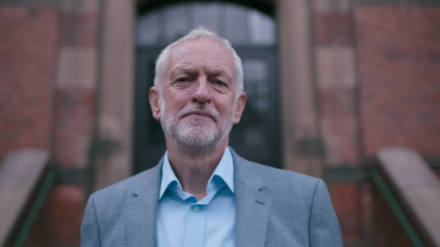
Labour’s conference gave the party a clear aim: to win over towns. This was backed up by an emotional and expressive party political broadcast that placed towns at the front and centre of our political ambitions. Now Labour must pull together the policy to put this plan into action, tackle the isolation felt in towns and ensure these places are no longer left behind.
These communities largely voted for the UK to leave the EU. They are Leavers for many reasons, but a large part of the referendum result can be put down to the feeling that the EU operates as a distant elite. To address that sentiment, some are calling for devolution deals to city regions with mayors – designed to help drive power closer towards the people it affects. There is logic to this, but the reality doesn’t quite align. While devolution undoubtedly works for cities – with London, Manchester and Birmingham all performing well on the back of devolution – the same cannot be said for towns.
A recent report by the Centre for Cities said we should further empower metropolitan areas and, for those in surrounding towns, this is good as they can commute to the nearest city. This ignores the issue. Lisa Nandy is right when she explains the view of devolution in towns like Wigan – sitting awkwardly under Greater Manchester’s mayor when it is more culturally aligned to Lancashire – as “replacing one distant elite [in London] with another [in Manchester]”. This is just as relevant in small cities like Wolverhampton (sitting under the West Midlands Metro Region) as it is to isolated towns such as Barrow-in-Furness (culturally aligned to Lancashire but now part of Cumbria, neither of which has a practical devolution deal to speak of).
The 2012 referenda on whether to have elected mayors in 11 cities, when nine voted against, showed how few areas see them as necessary – especially when mechanisms for delivering power closer to home already exist in every town and city across the country in the form of local councils.
Bypassing an imposed mayor and instead boosting the power and responsibility of local councils seems more sensible. There is no logical argument to say your local council is a “distant elite” when it meets at the local town hall. Where there are both borough and county councils – if the delivery of new powers was linked to becoming a unitary authority, it could also be seen as reducing bureaucracy and clarifying accountability
Labour’s policy platform for local government is interesting, and it has been built upon since the last election. Calling for local control over bus services may be scoffed at in the capital, but to small towns the decimation of services has left communities isolated and people stranded from work and school. Councillors have better knowledge of local areas and are better placed to know which services are essential than accountants in an operator’s HQ, while offsetting loss-making community lifelines with profit-making key routes is sensible for tendering contracts.
John McDonnell has also taken a keen interest in Preston City Council’s model for municipal socialism, where as much of the council budget as possible is used to support local jobs and businesses. Other public sector bodies are seriously looking at the direction taken by Preston too, which shows how interesting this platform is – even with a tight budget, a council can make a structural difference to its local economy.
Britain faces a housing crisis: soaring homelessness; rents and house prices spiralling beyond earnings. Labour and even the Tories now accept councils need greater powers to borrow and deliver more social housing. Local authorities have considerable power over the planning of housing, but little over the delivery of it. Empowered councils should have the freedom to build housing for the open market – providing a valuable source of income, and affordable housing to buy.
Brexit gives Britain an opportunity to reform local government so it works for communities right across the country. Sliding in elected mayors in cobbled-together city regions will not have the required effect. Grassroots politics requires grassroots power, and devolving more power to local authorities will ensure politics works for isolated regions.
James Flynn is a Labour activist and former organiser from Cumbria.




More from LabourList
‘The High Court judgment brings more uncertainty for the trans community’
‘There are good and bad businesses. Labour needs to be able to explain the difference’
‘This ruling should now remove any remaining barrier to approval of EHRC code’